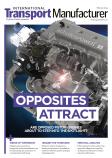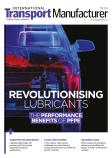An early research study by the University of Wolverhampton is proposing to develop new technology to reduce noise pollution from aircraft.
The feasibility study, which has been produced with funding by the UK Department of Transport, looks at sound transmission and how it interacts with structures using acoustic interference to reduce noise.
Dr Arun Arjunan, Course Leader in Mechanical Engineering in the Faculty of Science and Engineering, said: “The most significant environmental impact of aviation is noise and airport expansion is currently a challenging issue due to the adverse impact it can have, not only on the environment but on the wellbeing of people living close to or near to airports.
“Numerous approaches have been adopted over the years to manage airport noise in the UK but there’s now a pressing need to employ new and innovative noise abatement technologies. Our recent research has found that noise abatement devices utilising the principles of acoustic interference could be a solution to this problem.
“Employing this theory, airport infrastructure can be transformed into noise cancelling devices, potentially reducing the airport noise by over 65%. However, further study combining multichannel interference cavities into a single structure is necessary to develop further design guidelines to cover a broad frequency spectrum.”
The team at the University have developed technology that uses geometrically controlled complex interference cavities to change the phase of an inbound acoustic wave to substantially lower the sound pressure level. Under laboratory condition the study was able to create interference peaks that have a sound reduction capacity of up to 72 decibels.
The initial research was funded by the Technology Research Innovation Grant and the team will be bidding for new research funds of between £5 and £10 million to pull together a consortium to progress the research further.










